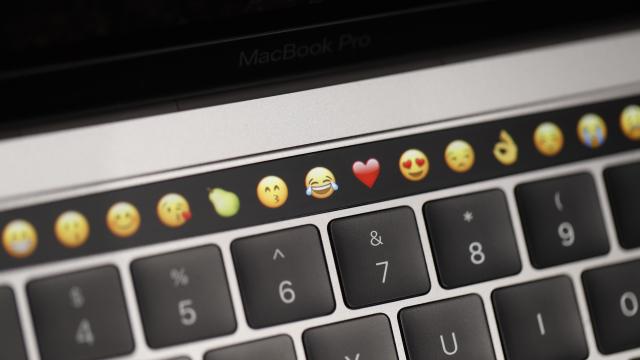Our online conversations are riddled with emoji, and while the amusing characters can be a creative way to express certain concepts between friends, how they’re interpreted can be a giant legal headache.
According to Santa Clara University law professor Eric Goldman, since 2004 there’s been an exponential growth in court cases that reference emoji or emoticons.
By Goldman’s count, there were 53 cases in 2018 compared to 33 in 2017, 25 in 2016, and 14 in 2015. So far, Goldman has identified 171 all-time court cases involving emoji, meaning over 30 per cent of the total came in the past year alone. To be clear though, this only includes cases that reference the words “emoji” or “emoticon” — it’s unclear if there are possibly more cases where emoji are referenced by symbols alone.
Of course, that’s only to be expected as text messages, emails, and other types of electronic communication increasingly become sources of evidence—especially in sexual predation and workplace discrimination cases.
For instance, a WSJ report references a sexual harassment case in which an ???? emoji text response was an employee approving of her former business partner’s romantic advances or politely telling him to bug off.
The Verge also references a Bay Area case where a man was arrested during a prostitution sting. Key evidence included his Instagram DMs and the emoji string ????????????. Prosecutors said this implied he was a pimp, while the defendant said he was just trying to flirt.
And in 2017, an Israeli couple was found guilty of leading on a landlord by texting this ????????????✌️☄️????️???? emoji combo, which the landlord took to mean they wanted his apartment. When they ghosted, the landlord sued for damages. The courts ruled in his favour saying the happy emojis indicated an intent to do business.
But there’s a lot to worry about when it comes to this interpretive grey area when it comes to current legal frameworks. For starters, Goldman says legal opinions can’t always display emoji, and they are routinely omitted. Databases, like Westlaw and Lexis, are also unable to display emoji, which makes it difficult for lawyers to search for court opinions where emoji may have been used.
Also adding to the problem is the fact that emoji aren’t rendered uniformly across platforms. One of the better examples is that until recently, Apple users sending a water pistol emoji would inadvertently send Android users an actual revolver.
Complicating this is emojis can have vastly different meanings depending on where you live. In Japan, ???? was initially meant as a look of triumph harkening back to anime and manga. In the West, it’s more frequently used to indicate frustration or anger.
When you take all these factors into consideration, emoji can be more tricky and legally murky than you might intend when sending off a text. Right now, it’s not protocol for judges or lawyers to present the exact emoji, or renders thereof, in court. That only leads to more confusion when you consider court publications and opinions may even omit them entirely because they can’t figure out how to properly depict them yet.
So for the love of god, while courts are still figuring out how to parse emoji speak, use some common sense. Maybe don’t send coworkers ambiguous ???? or one of these emoji essays when they do you a favour. Perhaps, follow up with clarification if you send your landlord or roommate ???????????? before they think you already sent rent when you mean “you will send rent.”
A quick “jk” or even words (remember those?) spelling out your intent could save you hurt feelings or legal nightmares. Or as a basic rule, if you can’t decipher your emoji string, a judge or lawyer probably can’t either.
[Eric Goldman via The Verge]
